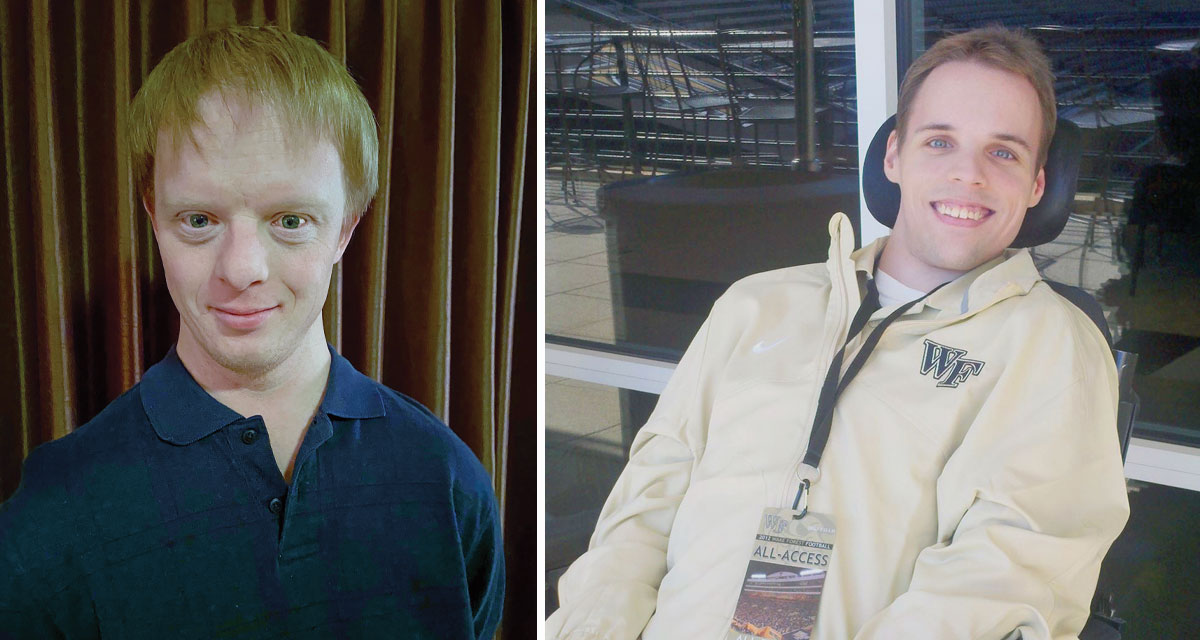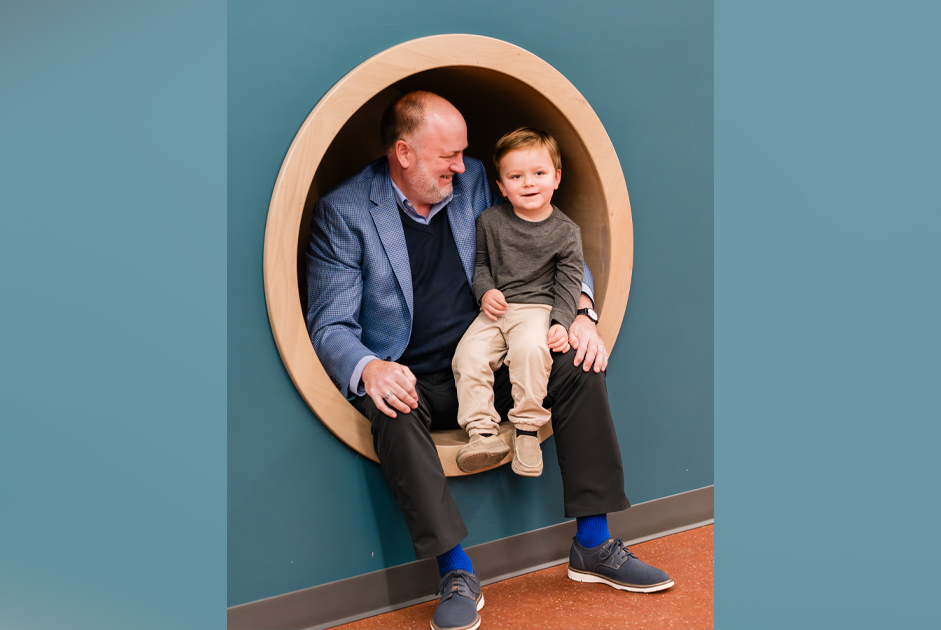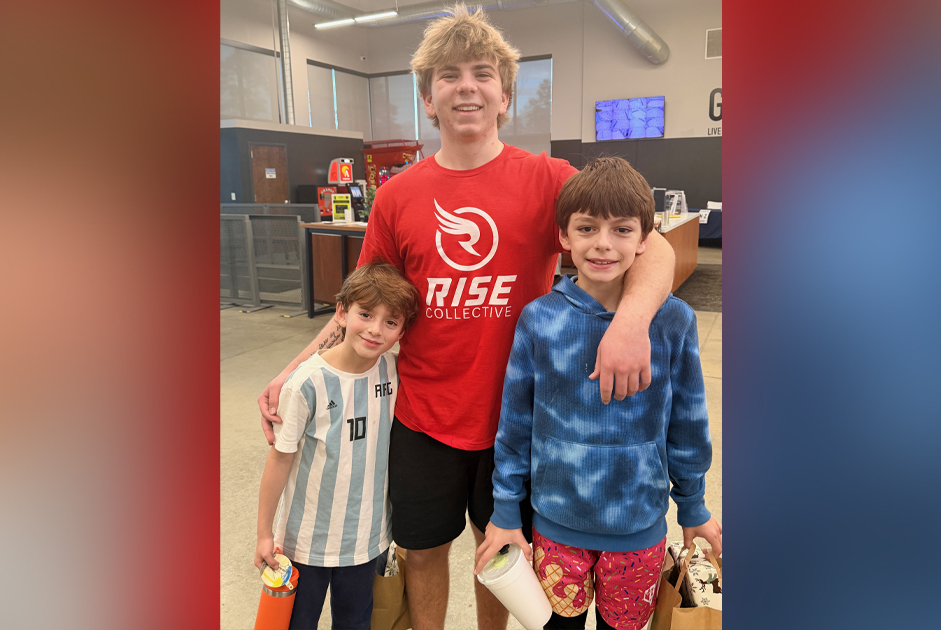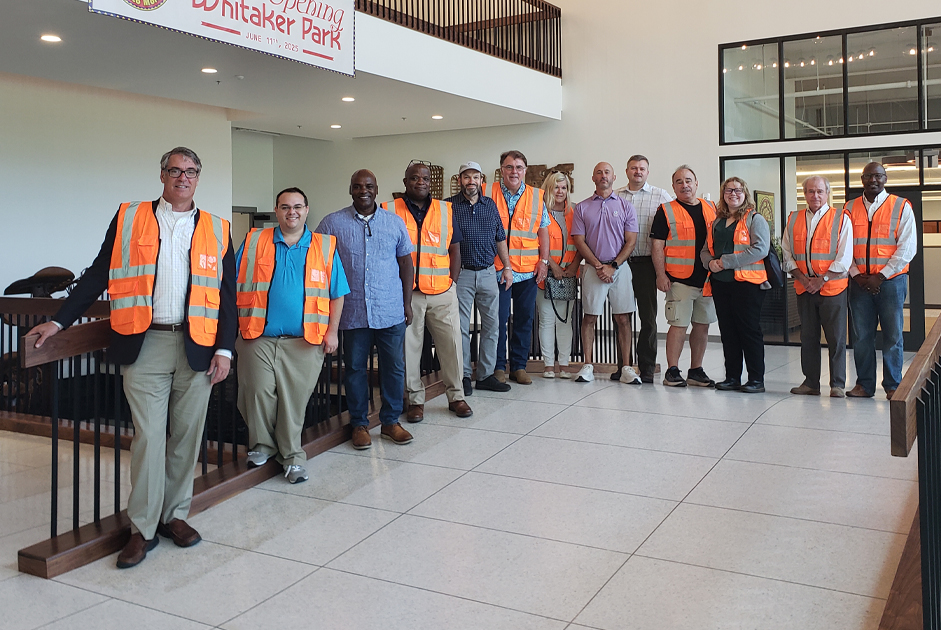It’s a given: being a parent is hard work. But when you are raising a child with special needs, the level of care and stress is not just higher, it shifts the foundations of families and adds unimaginable complexities for everyone involved. Dealing with the day-to-day of a special-needs child of any age can make you feel like you are the only one going through the stresses and highs and lows of life. Knowing there are others who understand how you feel and are working on your behalf to assure services are available to your loved one makes a difference. Deborah Woolard and Sarah Potter are two moms with adult sons dealing with disabilities, and are on a mission to get those in our state with intellectual and developmental disabilities the help they and their families need.
The process to receive services and support begins with The NC Innovations Waiver, a health plan for people with IDD (intellectual and developmental disability), allowing people to receive services and support in their homes and communities instead of an institution. Cardinal Innovations and other managed care organizations keep lists of those eligible to receive a NC Innovations Waiver slot. This list is called The Registry of Unmet Needs.
In North Carolina alone, there are 14,000 people who have IDD on The Registry of Unmet Needs for assistance; 792 of those are in Forsyth County. Those 14,000 qualify for services to help them develop skills and participate in community activities. The Registry of Unmet Needs continues to grow, as families become desperate due to lack of support and services for their loved ones. There are many who have been on the wait list for ten years or more. Deborah Woolard and Sarah Potter are two moms who are bringing attention to those on the wait list, and their families often suffer financial burdens in caring for their adult children.
Moms on a Mission
Deborah Woolard
Deborah’s son, Jeremy, is 35 years old with Down Syndrome, muscular dystrophy, among other diagnoses, none of which has kept him from having a fulfilling life. Jeremy has been active in local theatre productions throughout his life and is engaged. “My son is fortunate to have a waiver, and I see the benefit it offers him; however, his fiancée has been on The Registry of Unmet Needs for 14 years. Jeremy is able to work part-time and gain skills to be more independent and active in our community. Families are desperate for help and bringing attention to the wait list is a place to start. Sharing the stories of families locally and across the state is important in helping move forward in organizing and communicating with the public and legislators about the realities faced by these individuals and their families. The Triad IDD Advisory Committee, made possible by support from the Forsyth County Commissioners and Cardinal Innovations, of which Sarah Potter and I are members, works to advise on policies, procedures, guidelines, and publications for those with IDD. Those that have an Innovations Waiver develop goals and activities that help them develop skills, get jobs, make friends, and participate in community activities,” said Deborah.
Sarah Potter
Sarah’s son, Matthew, is 33 and has quadriplegia cerebral palsy. He graduated from Wake Forest University in 2009 and has been an advocate for those with disabilities since he was in middle school. “I have been advocating for those with IDD since Matt’s diagnosis. Matt has been on The Registry of Unmet Needs for almost nine years. It’s difficult to plan for your future or maintain any sense of security when there are so many unknowns. My work with The Triad IDD Advisory Committee mission is to help identify gaps in service, recommend additional services, advocate for underserved populations, and award grants to non-profits to offer programs to our IDD community. It is so important to bring an awareness to what families face. We are developing a website to bring families across the state together to more effectively address the wait list and to approach the General Assembly to work on solutions. A lot of work that advocacy groups do depends on funding through grants and decisions made at the federal level. There needs to be a commitment on the part of the General Assembly and stakeholders to sit down and figure out an equitable way to address the needs of families whose members with IDD languish on the wait list for years, unable to plan for the future,” Sarah commented.
Deborah and Sarah hope to bring awareness to the value of those in our communities with disabilities. “They have so much to offer and with a little assistance those on the wait list could receive needed assistance in areas of personal care, job skills, volunteering, and wage earning, allowing them to live life to its fullest,” stated Deborah.
For more information about IDD or The Registry of Unmet Needs, visit www.ncwaiveractionteam.com.



















